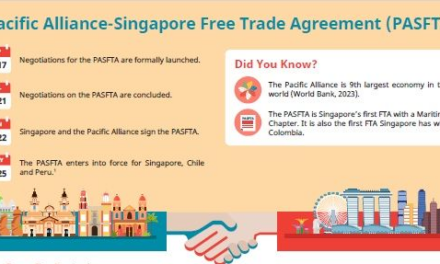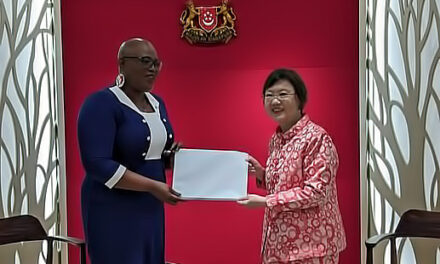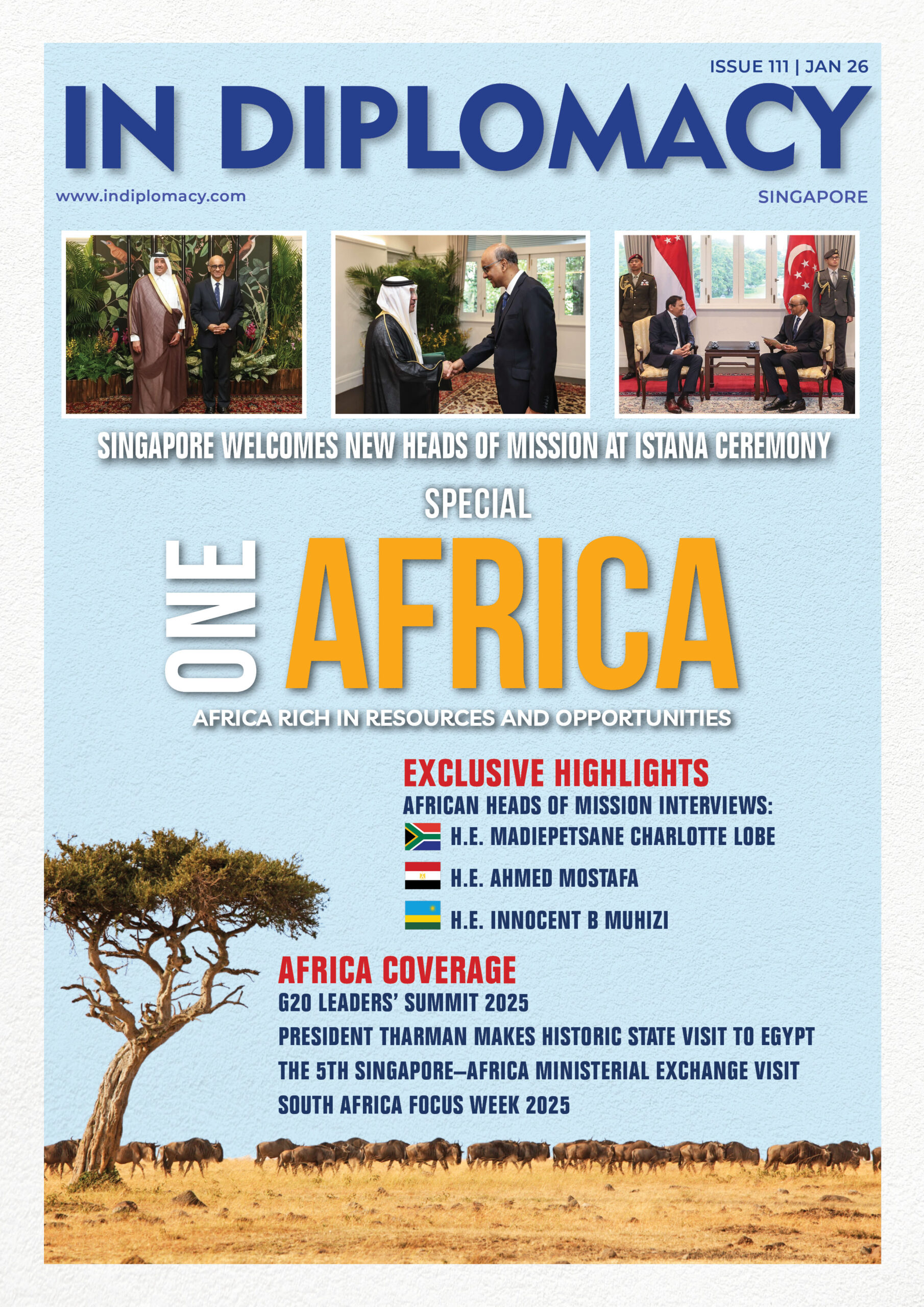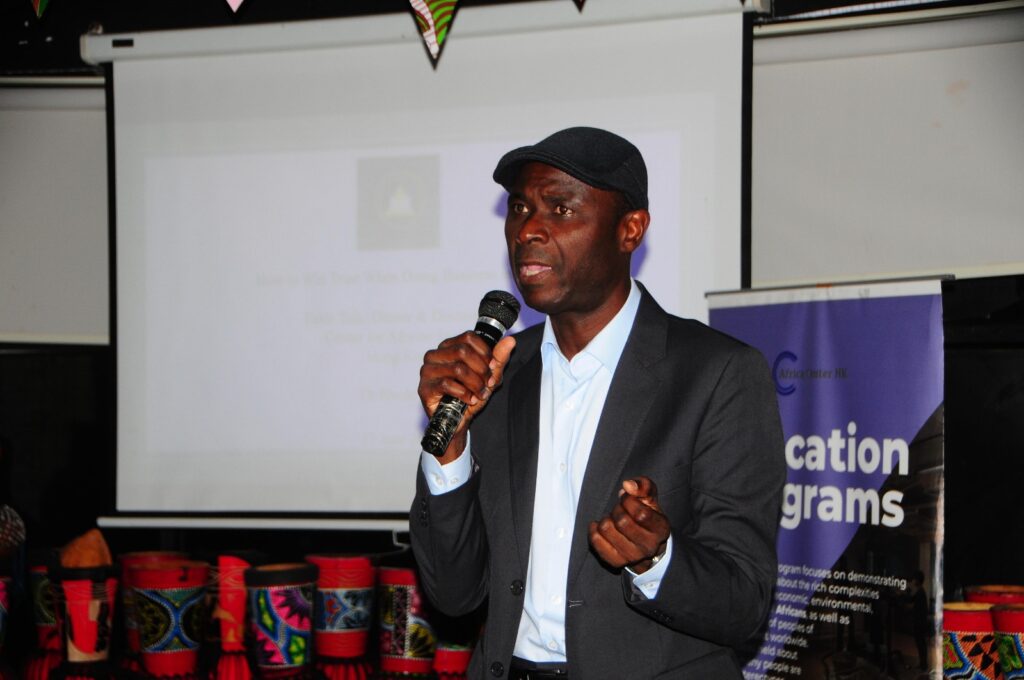
Dr. Ebede Ndi discusses reshaping Africa’s narrative, overcoming challenges, and fostering collaboration in education, research, and business between Africa and Asia.
The evolving partnership between Africa and Asia is paving the way for sustainable development and innovation. In an exclusive interview, Dr. Ebede Ndi, an educator and researcher, shared insights on reshaping Africa’s global narrative, addressing investor challenges, and fostering collaboration through education, research, and business.
How would you describe the current narrative surrounding Africa, and what efforts are being made to reshape it globally?
Historically, Africa’s image has been dominated by stereotypes focusing on poverty, conflict, and underdevelopment. However, efforts are being made to reshape this narrative by highlighting the continent’s potential in sectors like agriculture, technology, and infrastructure. Companies like Olam Agri and Tolaram Corporation are fostering this shift by focusing on sustainable practices and local community development. The narrative is also being shaped through stronger business relationships, media efforts, and regional cooperation, positioning Africa as a dynamic and diverse market ripe with opportunities for collaboration.
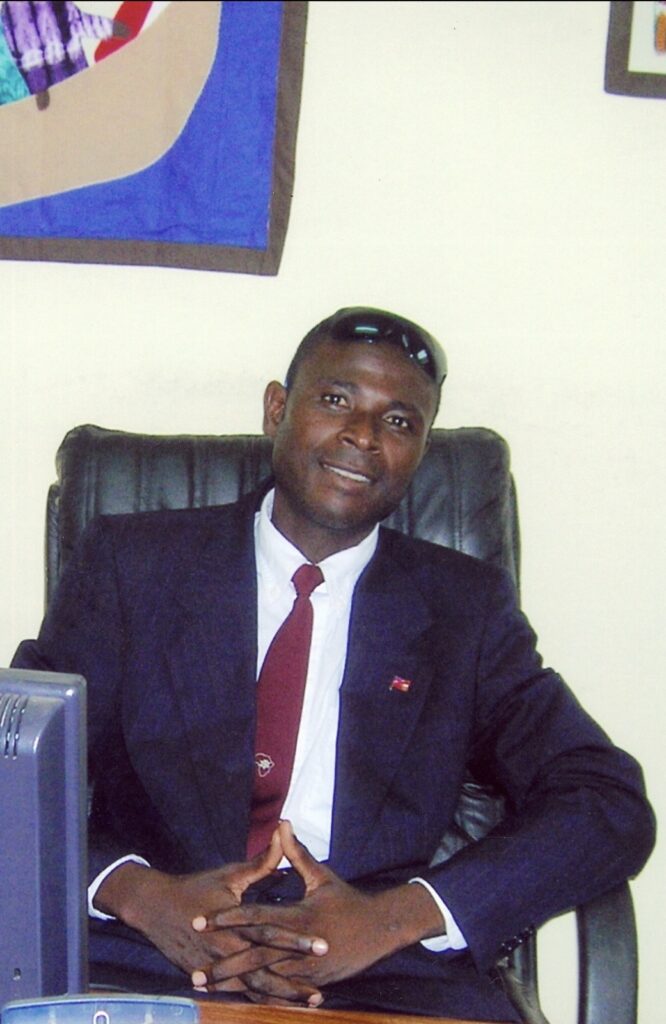
From your experience, what challenges do African nations face when reaching out to international investors, and how can these be overcome?
African nations face several obstacles when engaging international investors, including negative perceptions, infrastructure gaps, and policy uncertainties. These challenges are addressed through long-term partnerships and transparent communication. Companies like Pacific International Lines and Wilmar International demonstrate how consistent engagement can overcome these issues, such as improving trade connectivity and addressing environmental concerns. In workshops, building trust and highlighting successful case studies are key strategies to reduce perceived risks and strengthen investor confidence.
What roles do educational and cultural exchanges play in improving perceptions of Africa within Asia?
Educational and cultural exchanges play a vital role in fostering mutual understanding between Africa and Asia. These initiatives, such as African students studying in Asia, help to break down stereotypes and promote collaboration. By facilitating these exchanges, companies like Tolaram Corporation are not only advancing business but also building trust and relationships between the two regions. These programs are essential for preparing the next generation of leaders who can bridge the gap and drive further collaboration.
In your opinion, what are the key areas where Asia and Africa can collaborate for mutual growth and prosperity?
Africa and Asia can thrive by collaborating in sectors like technology, agriculture, renewable energy, and infrastructure. For instance, Wilmar’s palm oil production in West Africa and Olam Agri’s work in agriculture highlight successful collaborations. The partnership potential spans trade, education, healthcare, sustainable development, and finance. Leveraging mutual strengths, such as Asia’s expertise in technology and Africa’s growing markets and resources, can drive significant growth and innovation for both regions.
How do you see the role of Singapore in fostering deeper cooperation between Asia and Africa, particularly in the education and business sectors?
Singapore serves as a vital bridge between Asia and Africa, particularly in the education and business sectors. Its top universities foster academic partnerships, and its trade agreements facilitate easier market access between the two regions. Singapore’s expertise in sustainable development, urban planning, and technology further supports Africa’s infrastructure and environmental efforts. Moreover, business platforms like the Singapore-Africa Business Forum help enhance trade and investment relations, positioning Singapore as a key player in Africa’s economic growth and sustainable development.
What are the biggest misconceptions about Africa that you have encountered in Asia, and how do you address them in your workshops?
Many misconceptions about Africa persist in Asia, such as the belief that it is a single, impoverished, and conflict-ridden continent. In workshops, these are addressed by emphasizing Africa’s diversity, economic growth, and entrepreneurial spirit. Success stories from countries like Kenya and Nigeria demonstrate Africa’s dynamic business environments, while the political stability in nations like Botswana and Ghana challenges the narrative of widespread conflict. These efforts aim to shift perceptions from outdated stereotypes to a recognition of Africa’s innovation and potential for collaboration with Asia.
How can African countries better leverage their unique resources and opportunities to attract international students and researchers?
African nations can attract international students and researchers by promoting their growing knowledge economies, rich cultural heritage, biodiversity, and vast natural resources. By building partnerships with global institutions, offering affordable, high-quality education, and leveraging their unique ecosystems, Africa can position itself as an attractive destination for global talent. For example, universities in South Africa have made strides in biotechnology, and universities across Africa can attract researchers interested in sustainable development or environmental science. Additionally, by engaging the African diaspora and forming regional collaborations, African countries can build a strong, attractive academic ecosystem.

What is your vision for strengthening the relationship between Africa and Asia, especially in the context of education, research, and business development?
My vision for enhancing Africa-Asia ties is centered on three key areas: education, research, and business. By facilitating student and faculty exchange programs, promoting collaborative research in areas like healthcare, agriculture, and energy, and strengthening business ties through investments and joint ventures, both regions can unlock mutual growth. Successful business ventures like Singapore’s Wilmar International in Africa, focusing on agriculture, and Olam Agri in food production, demonstrate the potential for impactful collaboration. Sustainable development initiatives, such as green technologies and renewable energy, will also play a crucial role in fostering long-term partnerships.
In your workshops, how do you encourage cross-cultural communication between African and Asian stakeholders?
In my workshops, I promote effective cross-cultural communication by raising awareness of cultural differences and fostering an environment of mutual respect. Active listening, empathy, and practical tools like adjusting communication styles are central to breaking down barriers between African and Asian stakeholders. Real-life examples from my workshops, where participants from both regions successfully collaborate on business cases, demonstrate the power of understanding and adaptability. For instance, the emphasis on building relationships in Africa and the importance of hierarchy in Asian cultures can be navigated by encouraging participants to understand these cultural dynamics through role-playing and real-world scenarios.
As an educator and facilitator, what role do you think training and capacity building play in enhancing the Asia-Africa dialogue?
Training and capacity-building are crucial in bridging the knowledge gap between Africa and Asia. Through my workshops, I’ve seen how cross-cultural competency, leadership development, and research collaboration strengthen dialogue. By offering training in areas such as entrepreneurship, governance, and collaborative research, we empower future leaders to engage effectively across continents. Programs focusing on regional integration, like the African Union’s AfCFTA and Asia’s ASEAN, are examples of the potential for joint learning. Capacity-building not only fosters mutual understanding but also drives innovation and sustainable partnerships between the two regions, as seen in initiatives from companies like Olam Agri and Pacific International Lines.


